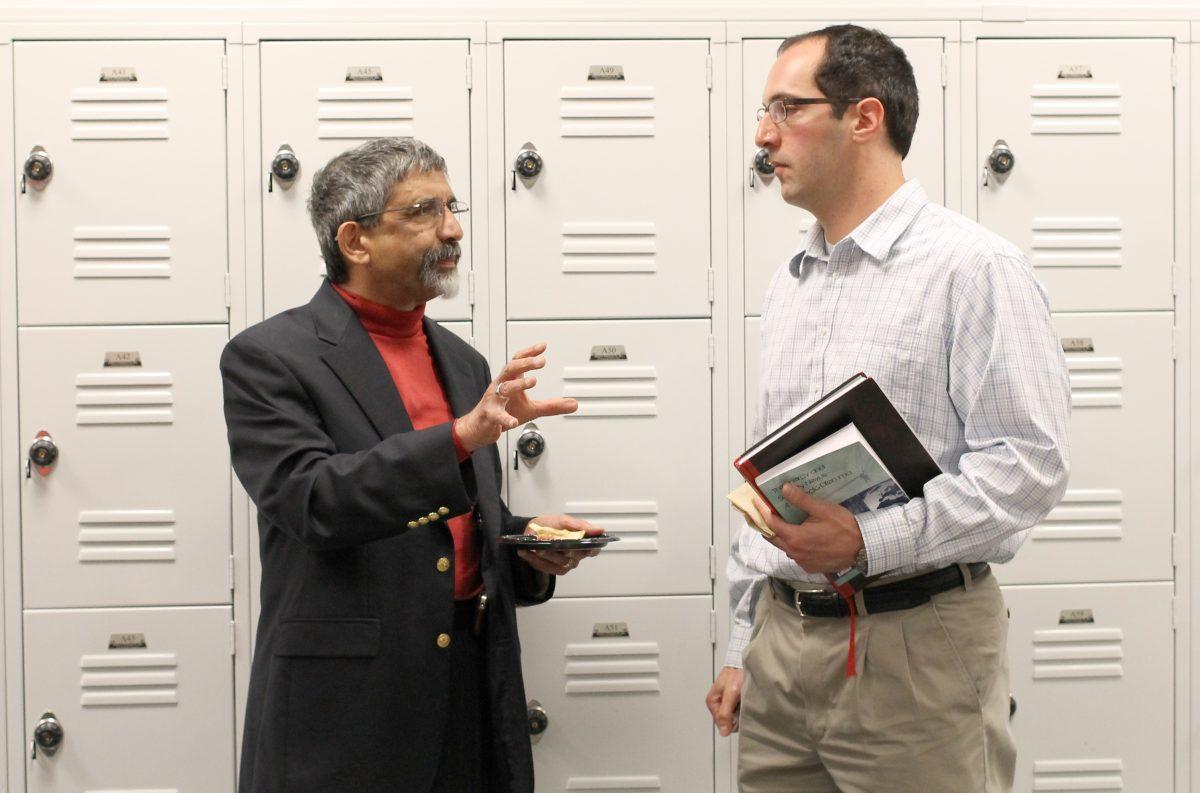A group of experts visited Centennial Campus Tuesday to discuss the economic, legal and societal implications of hydraulic fracturing, colloquially known as fracking.
The panel included Vikram Rao, executive director of the Research Triangle Energy Consortium,
Kenneth Taylor, the state geologist of North Carolina and Amy Pickle, senior attorney for state policy at Duke University’s Nicholas Institute for Environmental Policy Solutions.
All of the panelists serve as members on the North Carolina Mining and Energy Commission, an organization responsible for deliberating on and synthesizing environmental policies, such as those concerning fracking, on which North Carolina legislators vote.
Fracking is the process of breaking rock layers using pressurized liquid. The most lucrative application of this technique involves blasting millions of gallons of water into the ground in order to break layers of rock that contain either oil or natural gas for human consumption.
Fracking is a relatively emergent practice in the United States and elsewhere, the first commercial application of fracking took place in Oklahoma on March, 1949, by Halliburton. Fracking for natural gas, particularly shale gas, is an industrial practice which is expected to rapidly expand in North Carolina and across the United States in coming years.
According to the panel experts, fracking will account for 70 percent of natural gas development in the near future. Rao said oil is about four to five times more expensive to procure in the United States than natural gas is.
The United States is home to an abundant source of natural gas, the United States is the second largest producer of natural gas in the world. this gives the United States an unprecedented economic advantage in the energy industry.
North Carolina is no exception to the preponderance of natural gas accessible by fracking in the United States. According to Taylor, the Deep River Basin, a 150-mile-long area in central North Carolina, covers 83 million barrels’ worth of natural gas.
The advantages of autonomy in the energy production are also a concern of national security.
“Energy is much more dangerous than an army,” Rao said.
Rao cited the example of Russia shutting off its oil supply for ten days which cost Slovakia one billion Euros as evidence for his assertion.
Natural gas is also renowned by the Environmental Protection Agency for being the cleanest fossil fuel, producing much less carbon dioxide than oil or coal.
However, the increasing prevalence of fracking has lead to numerous environmental concerns and a necessity for new rules and regulatory agencies governing this emergent practice.
The topic of the role of government concerning fracking has been inherently decisive.
“[Fracking is] such a controversial issue in every corner of the globe where it is happening,” Pickle said.
During a public hearing in North Carolina about the environmental effects of fracking, Pickle said the attitudes of those who attended was summarized by the antithetical nature of two shirts worn by advocates in attendance which read “shale yes” and “frack no.”
“These problems require stricter regulations than we already have,” Rao said, affirming for the audience that “every concern and issue has been addressed,” by the agencies responsible for environmental regulations.
Some of the specific solutions proposed to many of these issues involve a public database of the chemicals used in fracking, which assures that they will not be harmful, and a system of recycling of flowback water (water which returns to the surface after fracking) to reduce the immense demand on water from neighboring communities for fracking operations.
However, a complete system of fracking regulation is yet to be established.
“There are a lot of things about this project that we do not know yet,” Taylor said.
That being the case, it is expected that the legislation governing these practices will be on the books relatively soon, perhaps just in time for an economic boom in North Carolina’s energy industry.
“Our job is to identify the risks and set up regulatory institutions to mitigate these risks,” Pickle said.








